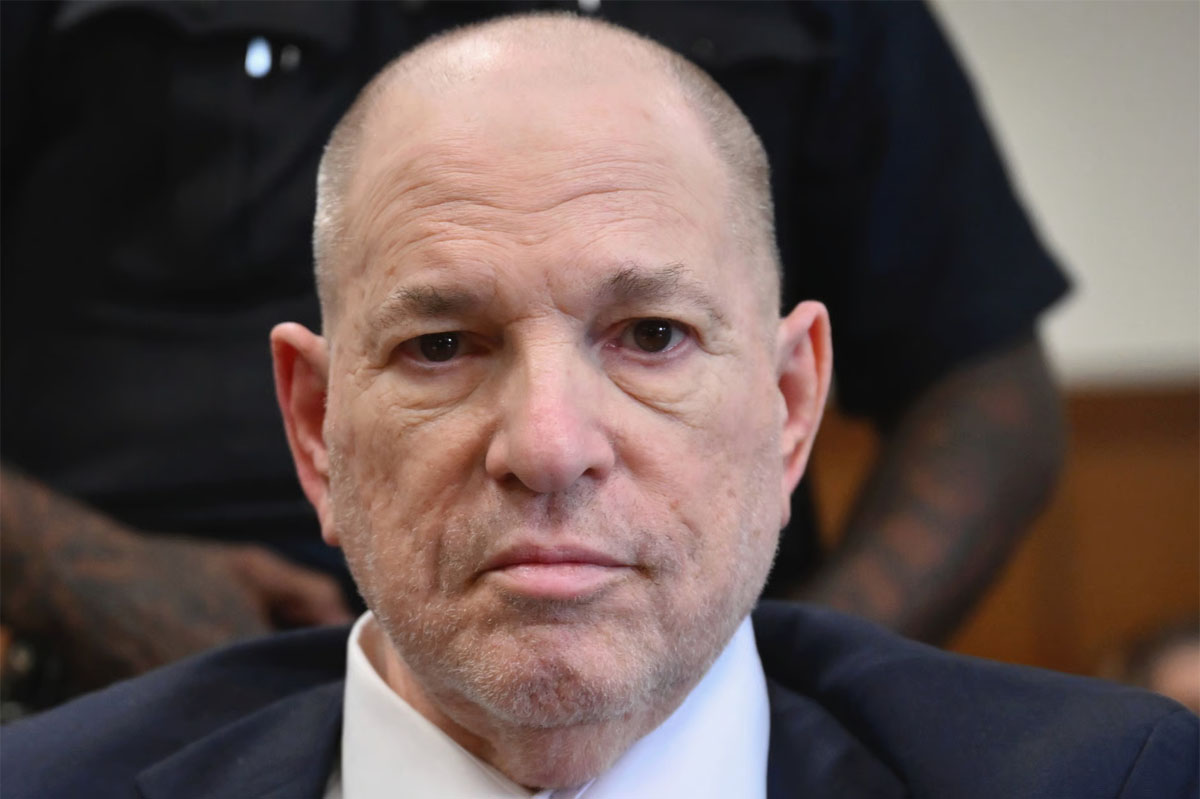
Photo Credit: Angela Weiss/Pool Photo via AP
Former Hollywood titan Harvey Weinstein’s retrial reached a dramatic climax on Wednesday as a jury convicted him of a top sex crime charge while acquitting him of another, leaving a third charge still hanging in limbo. The courtroom atmosphere was electric with tension as jurors navigated emotional testimony, internal disputes, and legal theatrics that could rival any Oscar-winning screenplay.
Weinstein, once a powerbroker in the film industry, was convicted of forcibly performing a criminal sex act on former production assistant Miriam Haley in 2006. However, he was acquitted of a similar charge involving Kaja Sokola, whose account had only recently been added to the retrial docket. Deliberations continue regarding a 2013 rape allegation by actress Jessica Mann, whose testimony was re-examined at length as the jury appeared deeply divided.
The retrial comes after Weinstein’s original 2020 conviction was overturned, shaking the #MeToo movement’s courtroom triumph and forcing a legal rerun in the very same Manhattan courthouse. Now 73, Weinstein has vehemently denied all allegations of sexual assault or rape, portraying himself as a victim of opportunism and public vilification. However, this retrial has underscored the complexities of bringing powerful figures to justice—especially when the jury itself struggles to maintain unity.
Wednesday’s session was anything but routine. The jury foreperson told Judge Curtis Farber he felt unsafe and bullied by fellow jurors, alleging one even threatened to confront him outside court. Weinstein’s lawyers, seizing the moment, demanded a mistrial while accusing the court of failing to protect the juror. The judge, however, allowed deliberations to continue, despite noting the juror’s firm unwillingness to change his stance.
Tensions had simmered since the previous week when another juror requested dismissal, citing unfair treatment within the group. On Wednesday, as portions of Mann’s testimony were replayed, some jurors scribbled notes with fresh intensity while others remained stoic, their faces unreadable as the words echoed through the courtroom.
Weinstein, apparently sensing the tides turning, made an unusual appeal to the judge mid-trial, declaring, “It’s time to say this trial is over.” He spoke those words before learning of the partial conviction—a moment heavy with irony and desperation.
As the retrial drags forward, it remains to be seen whether Weinstein’s fate will be sealed more definitively. What is clear, however, is that the long shadow of his legacy continues to haunt not just his accusers, but the very process meant to bring justice. The courtroom saga continues Thursday, as jurors prepare to grapple once more with the case’s unresolved third charge.
The retrial comes after Weinstein’s original 2020 conviction was overturned, shaking the #MeToo movement’s courtroom triumph and forcing a legal rerun in the very same Manhattan courthouse. Now 73, Weinstein has vehemently denied all allegations of sexual assault or rape, portraying himself as a victim of opportunism and public vilification. However, this retrial has underscored the complexities of bringing powerful figures to justice—especially when the jury itself struggles to maintain unity.
Wednesday’s session was anything but routine. The jury foreperson told Judge Curtis Farber he felt unsafe and bullied by fellow jurors, alleging one even threatened to confront him outside court. Weinstein’s lawyers, seizing the moment, demanded a mistrial while accusing the court of failing to protect the juror. The judge, however, allowed deliberations to continue, despite noting the juror’s firm unwillingness to change his stance.
Tensions had simmered since the previous week when another juror requested dismissal, citing unfair treatment within the group. On Wednesday, as portions of Mann’s testimony were replayed, some jurors scribbled notes with fresh intensity while others remained stoic, their faces unreadable as the words echoed through the courtroom.
Weinstein, apparently sensing the tides turning, made an unusual appeal to the judge mid-trial, declaring, “It’s time to say this trial is over.” He spoke those words before learning of the partial conviction—a moment heavy with irony and desperation.
As the retrial drags forward, it remains to be seen whether Weinstein’s fate will be sealed more definitively. What is clear, however, is that the long shadow of his legacy continues to haunt not just his accusers, but the very process meant to bring justice. The courtroom saga continues Thursday, as jurors prepare to grapple once more with the case’s unresolved third charge.